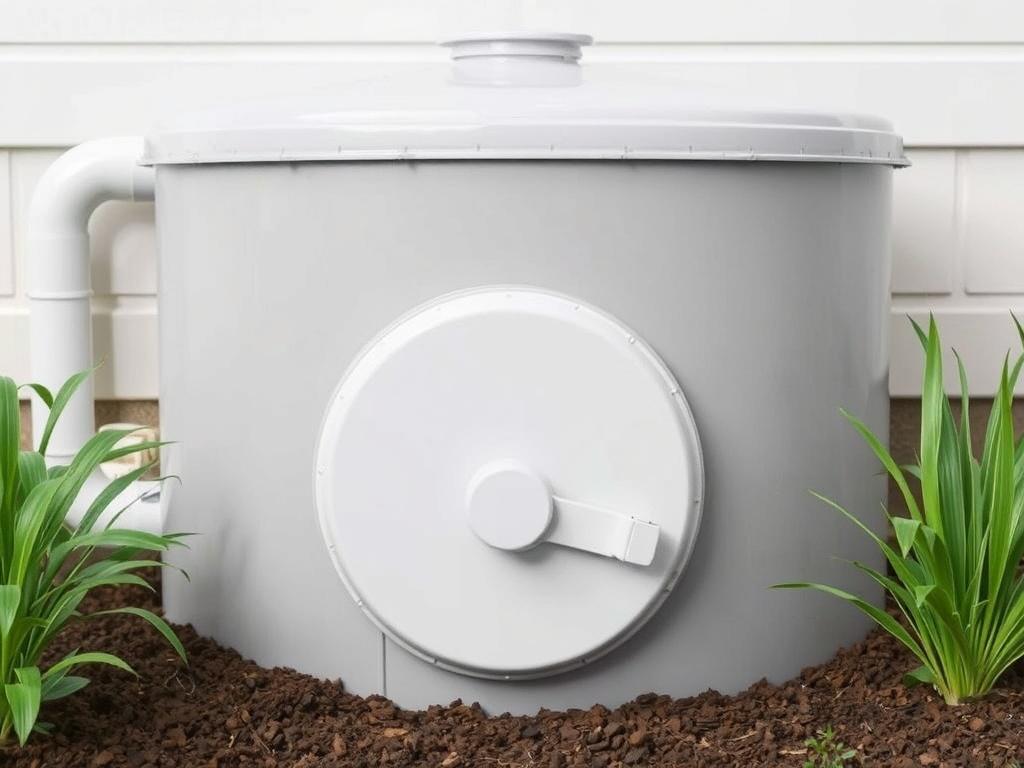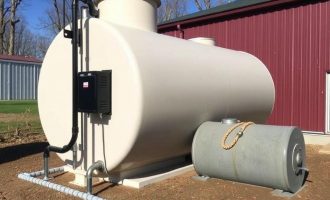Septic tanks are a vital part of many homes’ wastewater management systems, quietly doing their job beneath the ground. But when unpleasant septic tank odors start to waft into your yard, basement, or even inside your home, it’s more than just a nuisance—it’s a sign that something might be wrong. Understanding septic tank odors, the common causes behind them, and how to fix these issues effectively can make a huge difference in maintaining a healthy and odor-free environment around your home. In this guide, we’ll walk you through everything you need to know about septic tank odors, so you can keep your system running smoothly and your property smelling fresh.
- What Causes Septic Tank Odors?
- Common Sources of Septic Tank Odors
- Identifying Septic Tank Odor Problems Around Your Home
- Using a Simple Checklist to Detect Septic Odors
- Effective Fixes for Septic Tank Odors
- Regular Septic Tank Maintenance
- Unblocking Plumbing Vents
- Repairing or Replacing Damaged Components
- Keeping Your Drain Field Healthy
- Natural Remedies and Immediate Odor Control
- DIY Odor Fixes List
- When to Call a Professional
- Tips for Preventing Septic Tank Odors
- Common Myths About Septic Tank Odors
- Myth 1: Septic Odors are Normal and Can’t Be Fixed
- Myth 2: Adding Chemicals Will Solve Odors
- Myth 3: You Should Only Pump Your Septic Tank When It Smells
- Understanding Your Septic System: Key Components and Functions
- Final Advice on Maintaining a Fresh-Smelling Septic System
- Summary of Common Odor Causes and Fixes
- Conclusion
What Causes Septic Tank Odors?
Septic tank odors can be caused by a variety of factors, and sometimes multiple issues contribute to the problem at once. Understanding the root causes is the first step in diagnosing and fixing the problem. Typically, unpleasant smells from a septic tank result from gases like hydrogen sulfide, methane, and ammonia, which are produced by waste breaking down in the tank. While these gases are naturally occurring, problems arise when they escape into your living areas or yard.
One of the most common causes of septic tank odors is poor ventilation. A properly functioning septic system vents gases through the plumbing vent stack, typically located on your roof, where they dissipate harmlessly. If this vent becomes blocked, damaged, or clogged with debris, those gases can build up and cause a foul odor near your home. Another frequent cause is a cracked or damaged septic tank or drain field, allowing gases to escape into your lawn or basement.
Improper maintenance can escalate issues as well. For example, if the septic tank isn’t pumped frequently enough, solids build up, disrupting the natural bacterial processes that break down waste efficiently and leading to increased odor problems. Additionally, certain chemicals poured down the drain can kill helpful bacteria, impairing the system’s ability to process waste and resulting in unpleasant smells.
Common Sources of Septic Tank Odors
To get a clearer grasp on the issue, here’s a quick list of common septic tank odor sources:
- Clogged or blocked plumbing vent stacks
- Damaged or cracked septic tank
- Overflowing or full septic tanks
- Dirty or failing drain fields
- Excess water or flooding in the drain field
- Introduction of harmful chemicals disrupting bacterial activity
- Improper installation or design of the septic system
Understanding these causes can help homeowners be more proactive in both preventing and addressing septic tank odors.
Identifying Septic Tank Odor Problems Around Your Home

If you suspect your septic tank is the source of unpleasant odors, it’s important to identify where and when the smells appear. Septic odors can manifest in different ways and in different places, depending on the underlying problem. Here are some clues to determine if your septic tank might be the culprit.
First, if you notice a strong sulfur or rotten egg smell near your septic tank or drain field, that’s a strong indicator that gases are escaping from the system. These odors often appear after heavy rain when the ground is saturated, or after your system has received a large influx of water, like during laundry days.
If the odors are most noticeable inside your home, especially near drains, sinks, or toilets, it might be a sign that air is backing up from your plumbing system or that the plumbing vent is blocked. This can bring septic gases directly into your rooms, which is not only unpleasant but potentially hazardous.
Another sign to watch for is soggy patches of grass in your yard that smell bad, especially near your septic tank or drain field. This can signal a leak or failure in the septic system, allowing wastewater to reach the surface and produce foul odors.
Using a Simple Checklist to Detect Septic Odors
Let’s create a quick checklist you can use to assess whether septic tank odors are present and where:
| Check Location | What To Look For | Possible Cause |
|---|---|---|
| Near Septic Tank | Rotten egg smell, wet or soggy ground | Tank leak, overflow, or venting issue |
| Drain Field | Wet spots, foul smell, dying grass | Drain field failing or saturated |
| Inside Home | Smell near drains or toilets | Blocked plumbing vent, dry P-traps |
| Roof Vent Pipe | Obstruction or debris visible | Blocked vent causing gas buildup |
Using this checklist, you can get a better idea of what might be causing septic tank odors around your property.
Effective Fixes for Septic Tank Odors
Now that we’ve covered the causes and how to identify septic tank odors, it’s time to explore solutions. Fixing septic odors often involves a combination of maintenance, repairs, and sometimes even professional intervention.
Regular Septic Tank Maintenance
Nothing beats prevention when it comes to septic tank odors. Scheduling regular septic tank pumping—usually every three to five years, depending on usage—is paramount. Pumping removes solids that accumulate and can prevent the tank from overflowing or backups that generate smelly gases.
In addition, avoiding the use of harsh chemicals or antibacterial cleaners in your home helps preserve the natural bacterial balance that breaks down waste efficiently. Remember, these bacteria are the heart of your septic system’s odor control.
Unblocking Plumbing Vents
Checking and unblocking plumbing vents is a straightforward way to reduce septic odors. Leaves, nests, or other debris can clog your roof vent, causing gases to back up into your home. Inspect your vent regularly, especially during the fall when leaves are abundant. If you can’t reach the vent, or if it is heavily clogged, calling a professional plumber is a safe bet.
Repairing or Replacing Damaged Components
If your septic tank or drain field has cracks or leaks, odors are almost guaranteed. Repairing these issues might involve patching cracks in the tank or replacing damaged sections of your drain field. Sometimes, the damage can be more widespread, necessitating a full system replacement, especially if the drain field is failing.
Hiring a qualified septic system professional to evaluate and repair your system is recommended to ensure longevity and effectiveness.
Keeping Your Drain Field Healthy
Your drain field is the vital part of your septic system where treated water is released into the soil. It must remain functional and well-maintained to prevent odors. Avoid parking vehicles or heavy equipment on the drain field and keep trees with deep roots away to prevent damage. Also, controlling water usage in your home helps keep the drain field from being overwhelmed.
To keep your drain field healthy:
- Redirect downspouts and sump pumps away from the drain field
- Fix leaking faucets and toilets promptly
- Limit water consumption during rainy days to reduce saturation
Natural Remedies and Immediate Odor Control
Sometimes, you don’t have the luxury to wait for repairs or pumping, and immediate odor control becomes a priority. Thankfully, there are natural remedies and tips to manage septic tank odors while you work on the long-term fixes.
One effective approach is sprinkling garden lime around the septic tank and drain field. Lime is alkaline and neutralizes acidic, odor-causing compounds. However, be cautious—too much lime can disrupt soil chemistry and bacteria in the septic system.
Baking soda is another safe and natural deodorizer you can pour down your drains to absorb smells. Besides neutralizing odors, it can help maintain a healthy pH balance in the septic system.
Adding beneficial bacteria and enzyme treatments to your septic tank can also help break down solids and control odors. These bio-augmenters are available at most home improvement stores and are safe for septic systems.
DIY Odor Fixes List
If you’re experiencing septic tank odors and want quick fixes, here’s a helpful list:
| Remedy | How it Helps | Usage Tips |
|---|---|---|
| Garden Lime | Neutralizes acid odors in soil | Apply sparingly around tank and drain field |
| Baking Soda | Absorbs odors in drains | Pour ½ cup down drains weekly |
| Bacterial Enzyme Treatments | Enhances waste breakdown | Follow package instructions carefully |
| Regular Vent Inspection | Prevents gas build-up indoors | Clean vent caps seasonally |
When to Call a Professional
While many septic tank odor issues can be handled by a homeowner, some situations require expert help. If odors persist despite regular maintenance and simple fixes, or if you notice wet areas with strong smells in your yard, it’s time to contact a septic professional.
Professionals have the tools to inspect your tank thoroughly, identify cracks or leaks, and provide services like pumping, repairs, or even system replacement. Additionally, if your property has an old or improperly designed septic system, they can suggest upgrades to help reduce odors and improve performance.
Safety is paramount—septic gases can be harmful if inhaled in large quantities, so dealing with serious odor problems on your own is not recommended.
Tips for Preventing Septic Tank Odors

Prevention is always better than cure. Here are some tried-and-true tips to keep septic odors away for good:
- Schedule regular septic tank pumping and inspections.
- Avoid flushing non-biodegradable items and harsh chemicals down the drains.
- Ensure all plumbing vent stacks are clear and unobstructed.
- Conserve water to prevent overloading the septic system.
- Avoid heavy machinery or vehicle traffic over the drain field.
- Plant only shallow-rooted vegetation near septic components.
- Install a septic tank riser or lid that seals properly to prevent gas leaks.
By implementing these habits, you can significantly reduce the chance of septic tank odor problems in your home.
Common Myths About Septic Tank Odors
There are plenty of misconceptions floating around when it comes to septic tank odors, which can mislead homeowners and delay necessary repairs.
Myth 1: Septic Odors are Normal and Can’t Be Fixed
Many people believe that a slight smell from the septic tank is inevitable and nothing can be done. In reality, a healthy septic system should not cause any noticeable odors around your home. Persistent smells indicate problems that should be addressed promptly.
Myth 2: Adding Chemicals Will Solve Odors
Some assume that pouring chemical drain cleaners or deodorizing products into the system can fix odors. Sadly, these products often kill the beneficial bacteria in the tank, worsening odors and causing system failure over time.
Myth 3: You Should Only Pump Your Septic Tank When It Smells
Waiting until odors or backups occur before pumping can lead to costly repairs. Routine pumping based on a schedule suited for your system’s size and usage is the smartest approach.
Understanding Your Septic System: Key Components and Functions
To fully grasp septic tank odors and fixes, it’s helpful to understand the main components of your septic system:
| Component | Function | Relation to Odors |
|---|---|---|
| Septic Tank | Holds wastewater and separates solids | Improper maintenance leads to odor buildup |
| Drain Field (Leach Field) | Filters wastewater into soil | Failure causes surface odors and wet spots |
| Vent Stack | Releases gases safely into air | Blockages cause gases to enter home |
| Distribution Box | Distributes effluent to drain field | Clogs or damage can cause backups and odors |
Knowing these parts helps you spot issues faster and communicate clearly with septic professionals.
Final Advice on Maintaining a Fresh-Smelling Septic System
Keeping your septic system odor-free is all about routine care, smart water use, and quick attention to warning signs. Whether it’s periodically pumping your tank, checking your vents, or avoiding chemicals that disrupt bacterial activity, these small steps go a long way in preventing those unwelcome septic odors.
And remember, never hesitate to call in a professional if something seems off. They have the knowledge and experience to diagnose and fix problems before they escalate.
Summary of Common Odor Causes and Fixes
| Cause | Fix |
|---|---|
| Clogged Vent Pipe | Clean or clear the vent pipe, professional help if needed |
| Full or Overflowing Tank | Schedule septic tank pumping |
| Damaged Tank or Drain Field | Repair or replacement by professionals |
| Excessive Water Use | Conserve water and fix leaks |
| Harmful Chemicals in System | Avoid chemicals, use bacterial additives |
Conclusion

Septic tank odors can be a frustrating and unpleasant experience, but with some understanding and proactive care, they are entirely manageable. Recognizing the causes—from vent blockages to full tanks or drain field issues—allows you to address problems before odors become overwhelming. Routine maintenance, mindful household habits, and timely professional assistance are your best allies in ensuring your septic system remains efficient and your surroundings fresh. By approaching septic odors with both knowledge and action, you can safeguard your home’s health and comfort for years to come.
Помогла вам статья?






